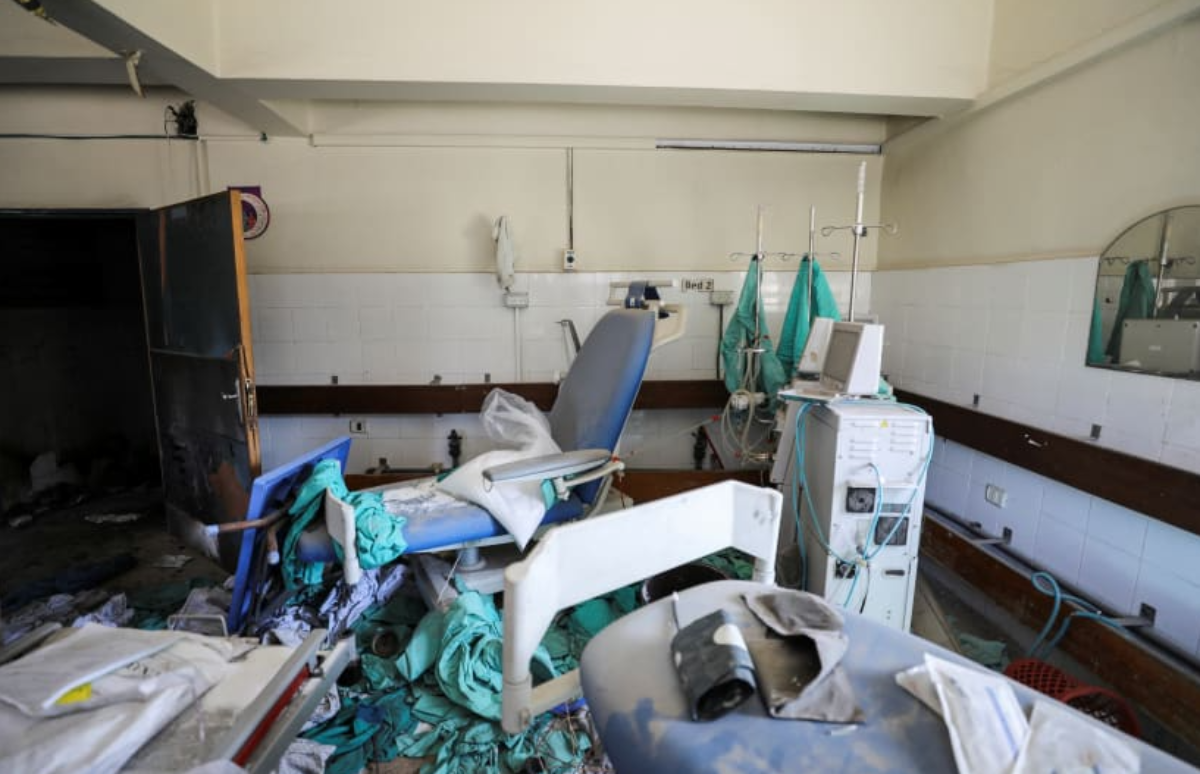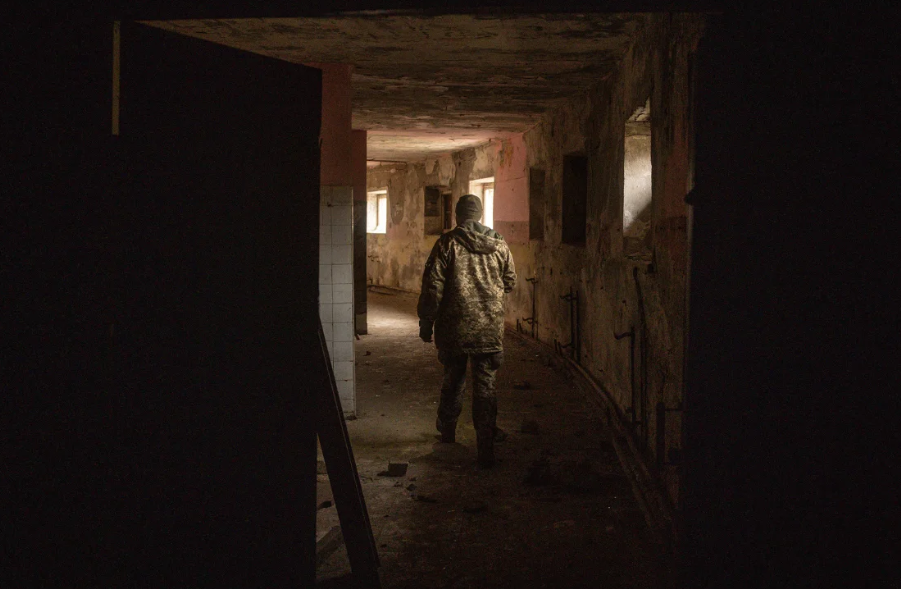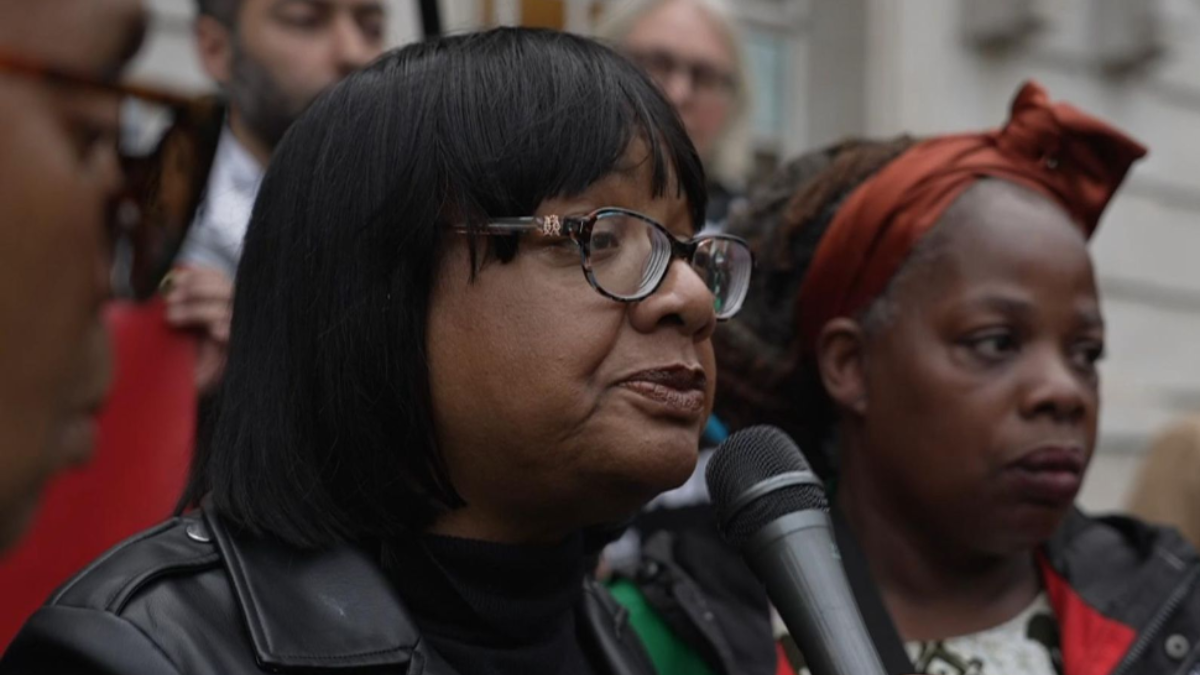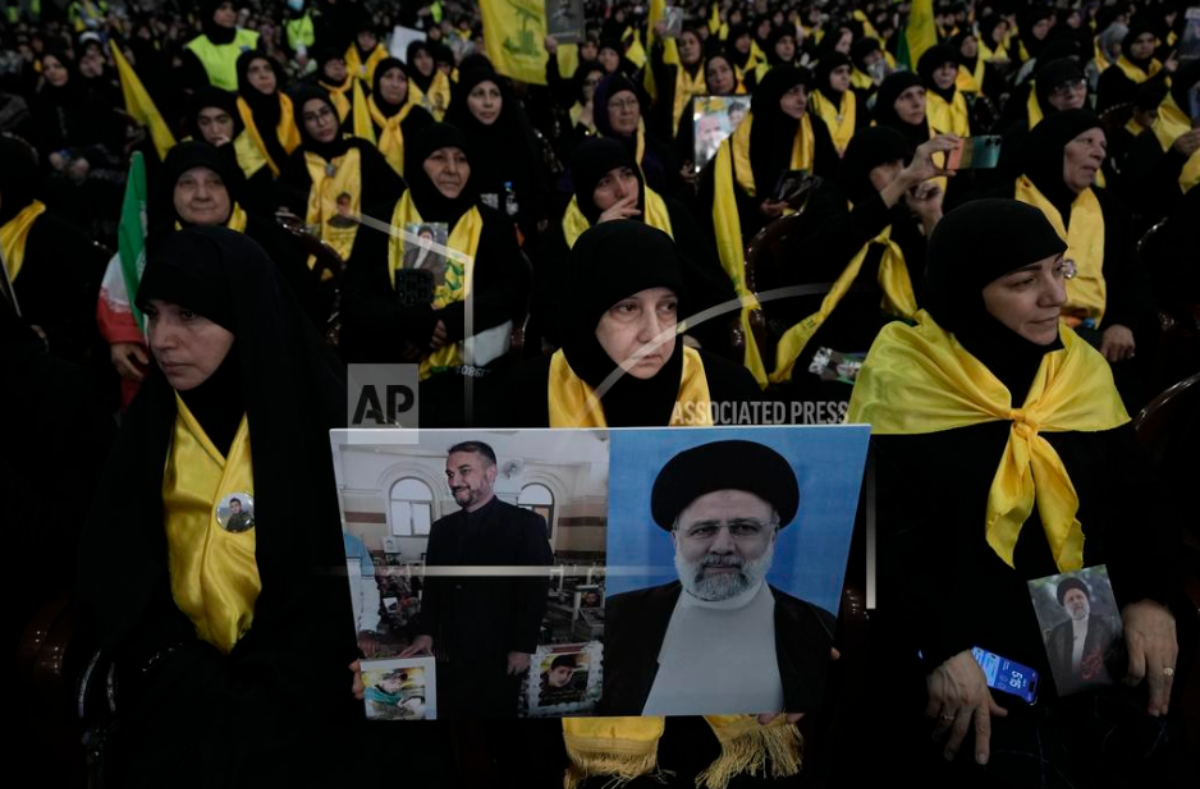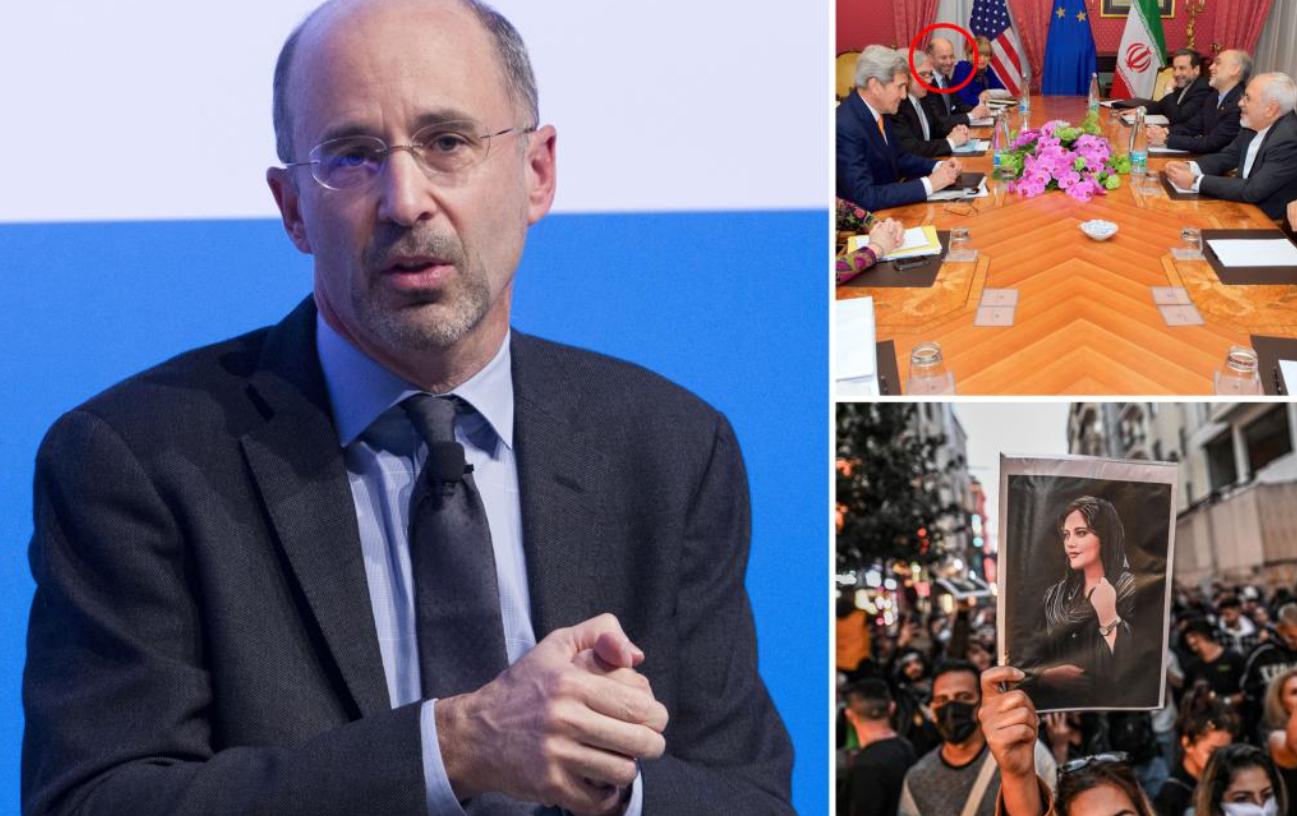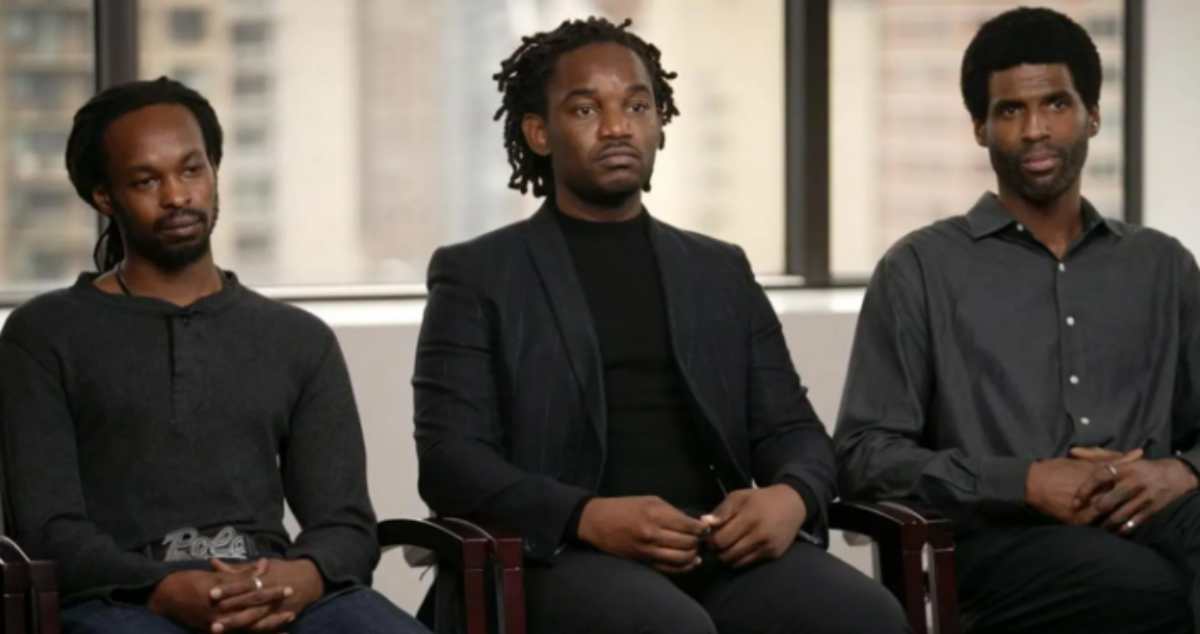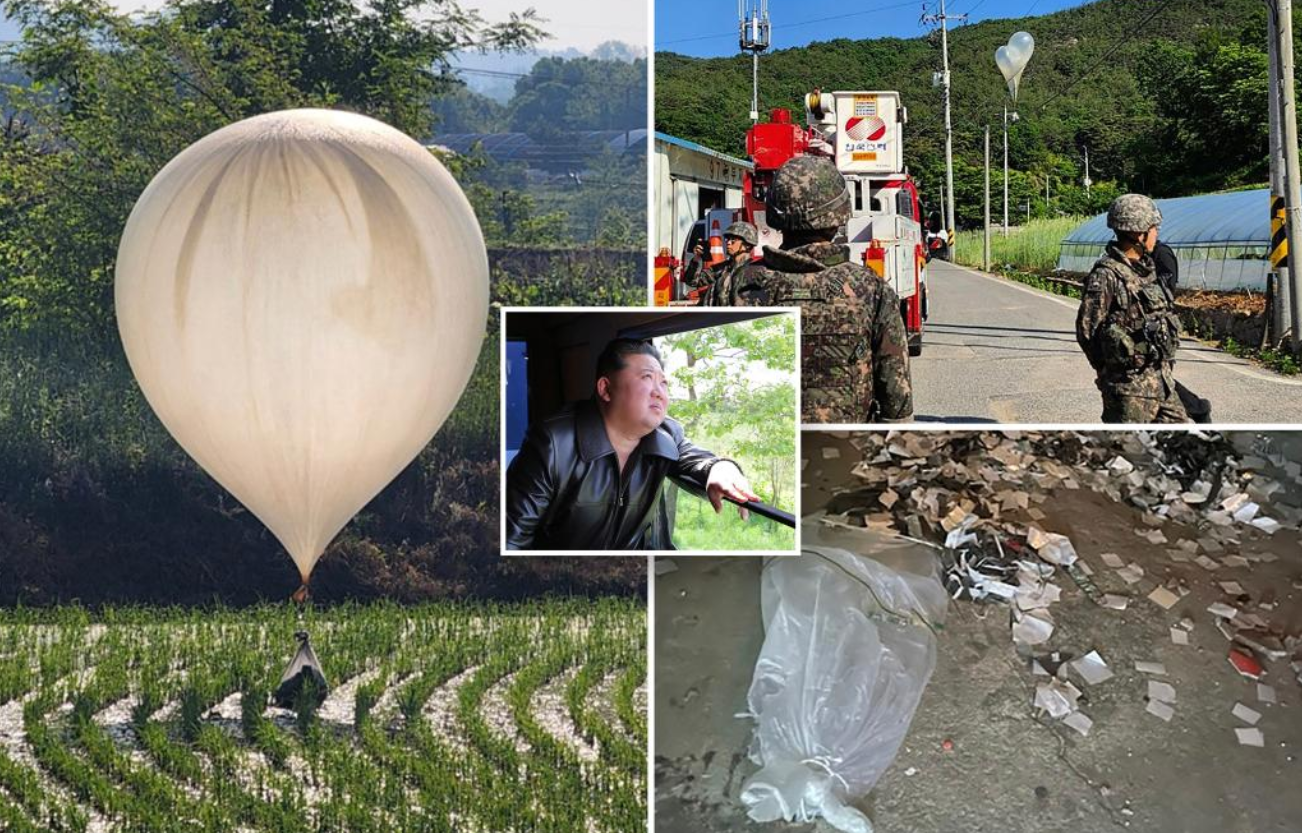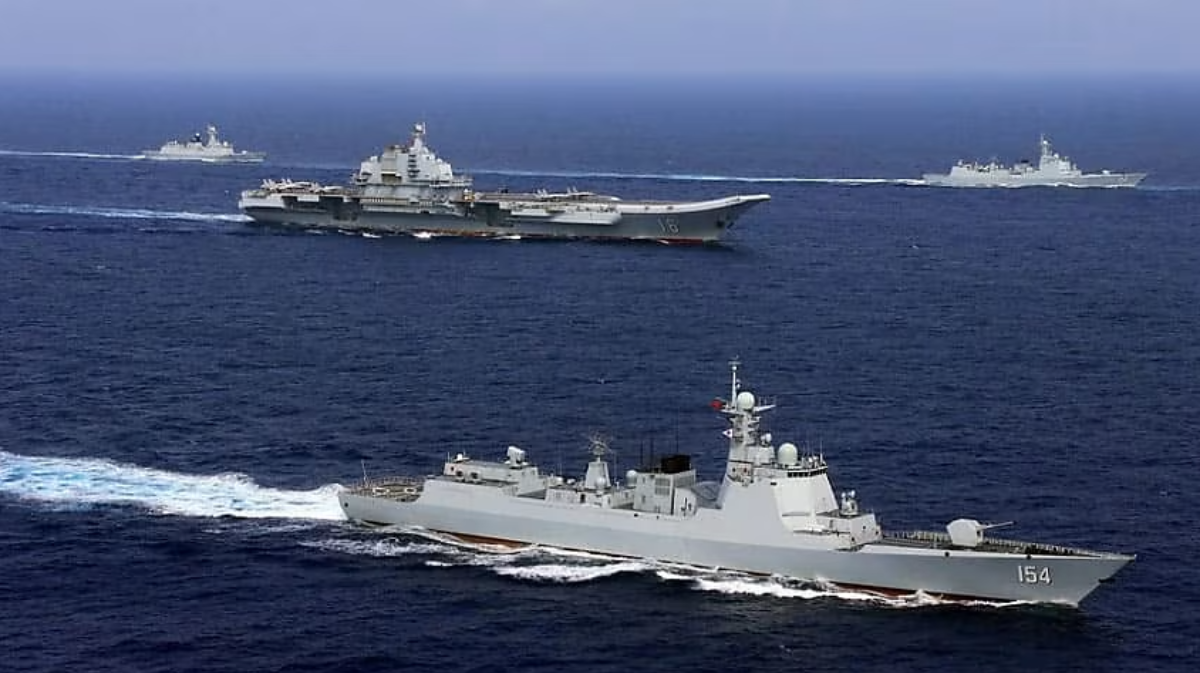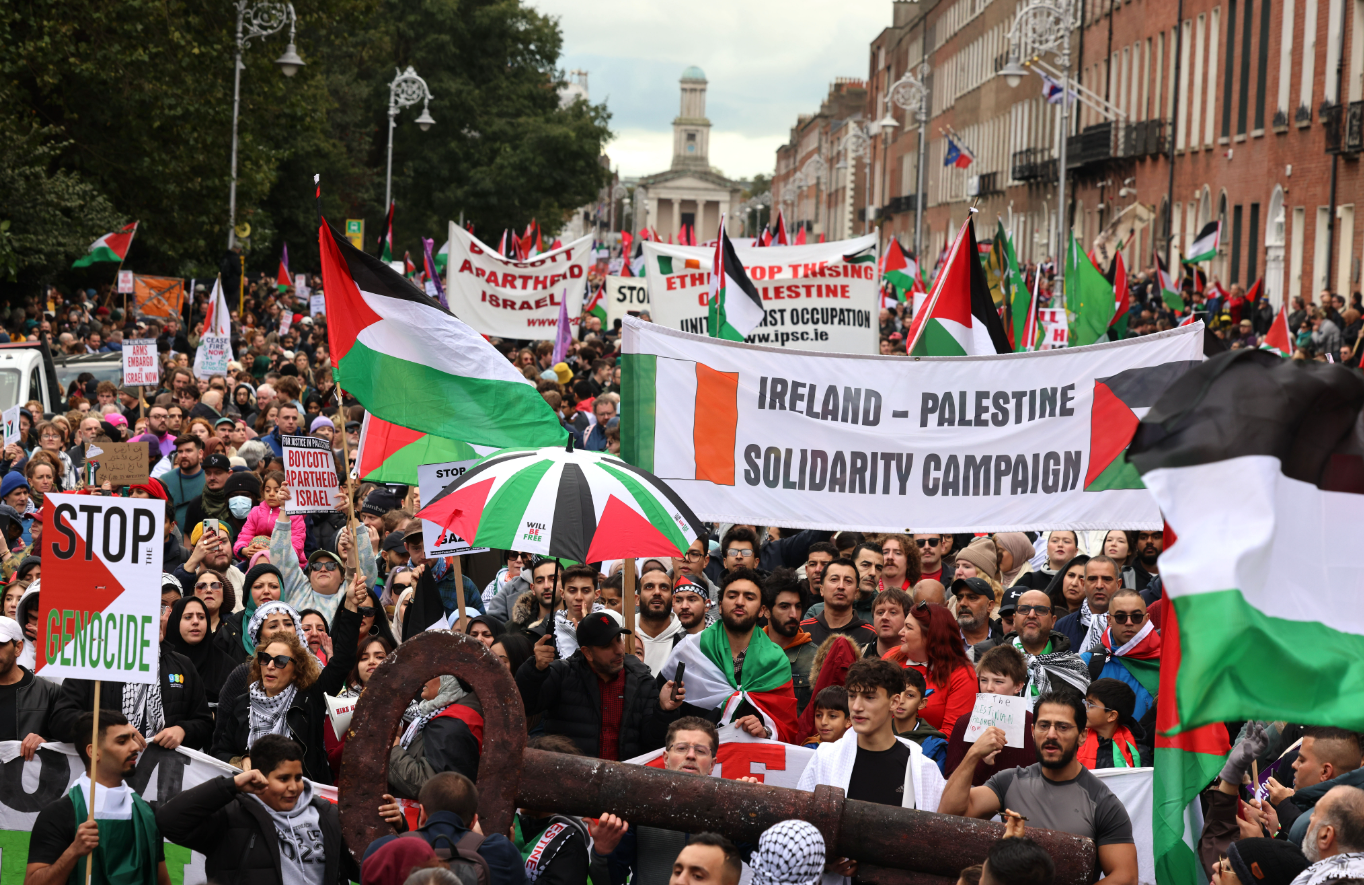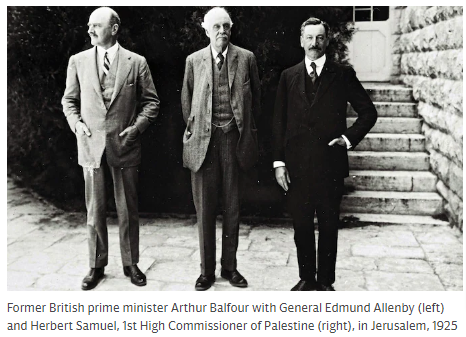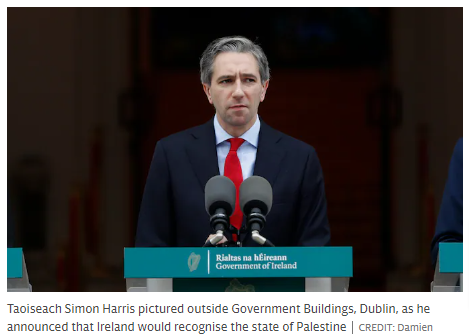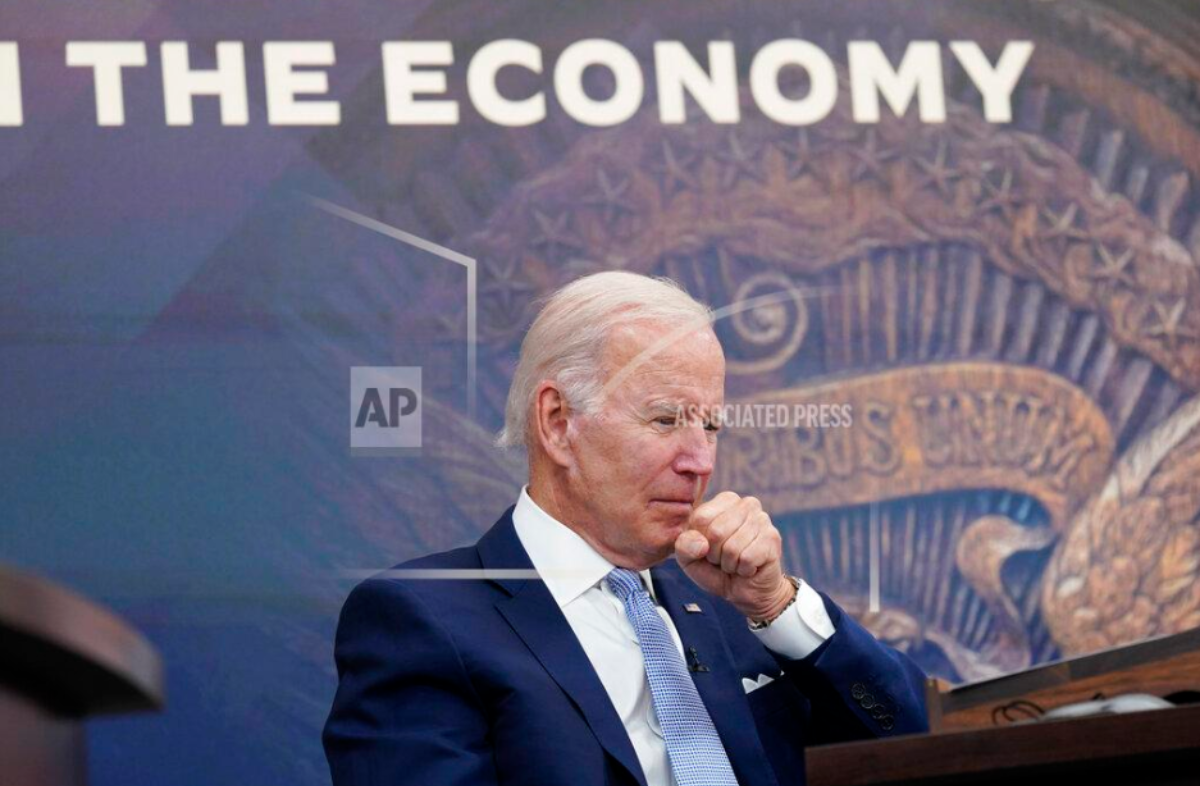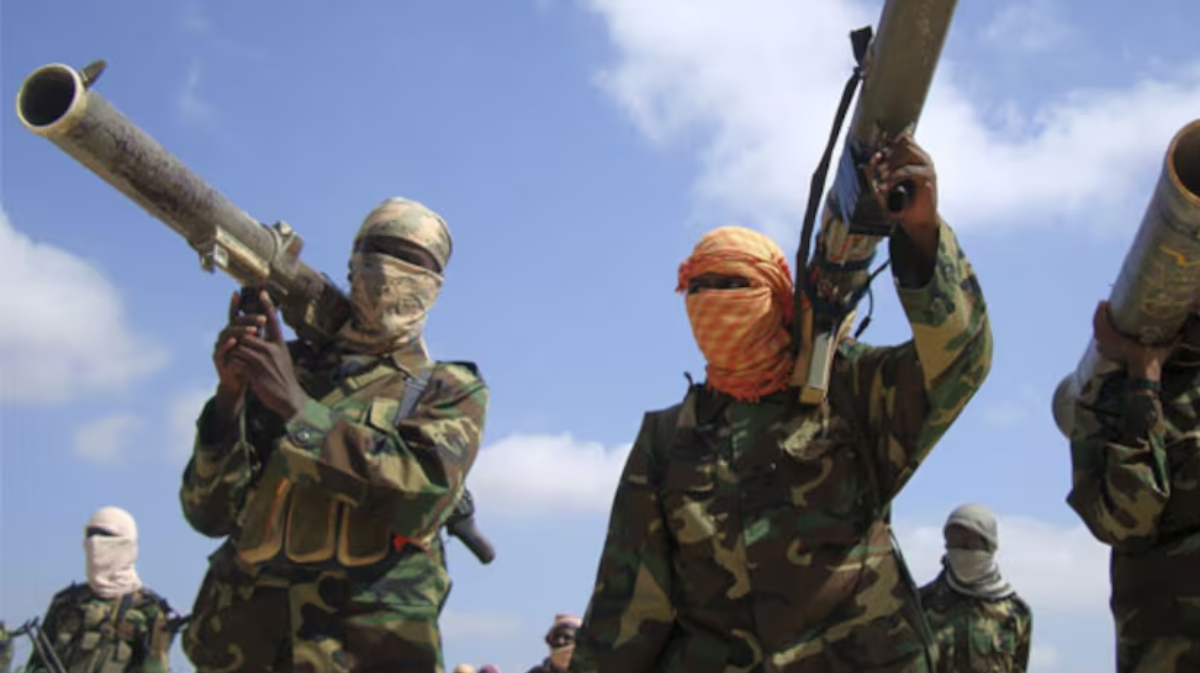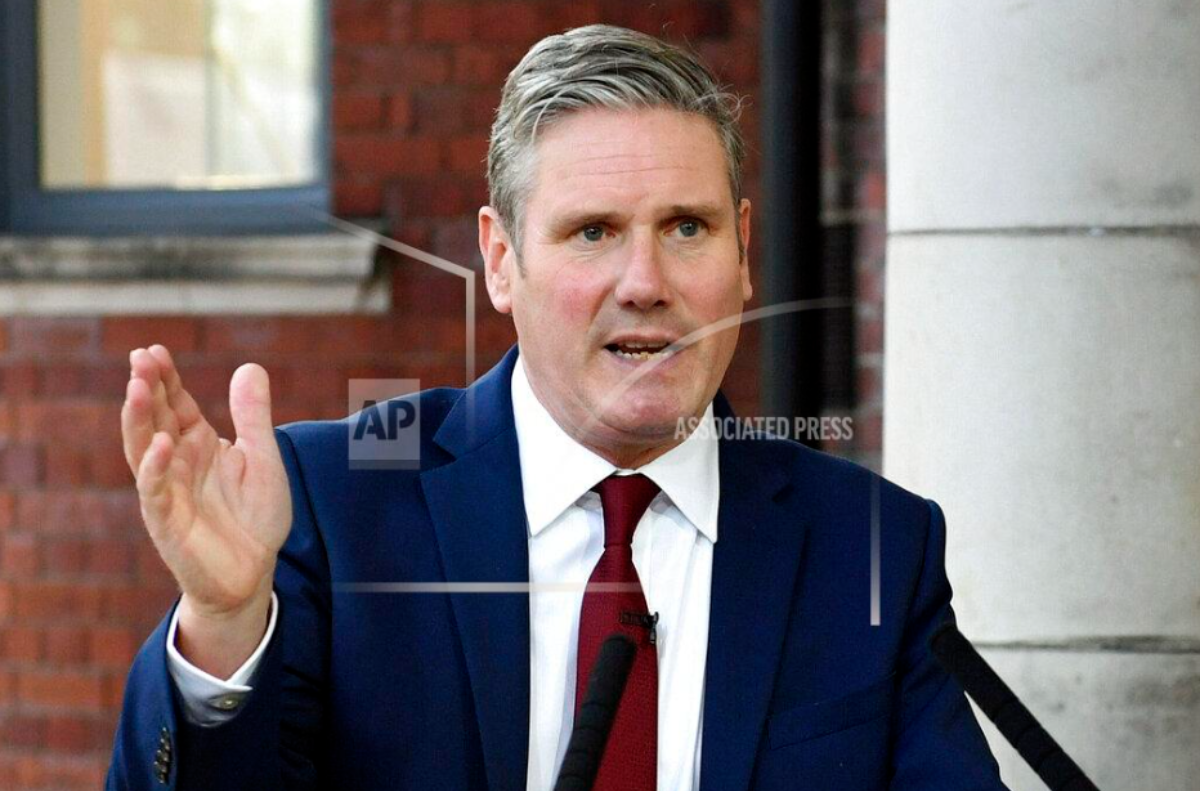-
Posts
10,064 -
Joined
-
Last visited
Content Type
Events
Forums
Downloads
Quizzes
Gallery
Blogs
Everything posted by Social Media
-

Israel is at War - General discussion (pt3)
Social Media replied to Social Media's topic in The War in Israel
Off topic wiki lists removed for the second time @Jeff the Chef along with a troll post -

Israel is at War - General discussion (pt3)
Social Media replied to Social Media's topic in The War in Israel
Post contravening our community standards has been removed. Insensitive trolling remarks regards murdered hostages. -
Dr. Baxtiyar Baram, a Kurdish physician who recently volunteered in northern Gaza, has provided a unique and troubling perspective on the ongoing situation in the region. In an interview published on the Kurdish website Rudaw and on YouTube, Dr. Baram revealed that despite having control, Hamas enjoys minimal support from the Gazan population and is involved in exploiting hospitals for its own benefit. According to Dr. Baram, only about 10% of Gazans support Hamas, yet the group maintains its grip on the territory. His insights come from his firsthand experience as part of a small medical team that entered Gaza through Rafah in April, prior to the Israeli Defense Forces' operations in the area and their reentry into Jabalya. This team, consisting of four doctors and a nurse, was among the first foreign medical aid workers to enter northern Gaza in months. Dr. Baram's testimony highlights the severe exploitation of medical facilities by Hamas. He noted that Hamas has established a "VIP" section in one hospital, where only certain patients—those with connections—receive treatment. "We made it to northern Gaza," Baram told Rudaw’s Sangar Abdulrahman. "They needed an orthopedist; I was the only candidate who dared to go." He described the journey through the Netzarim corridor, controlled by Israel, to reach northern Gaza, which reminded him of the devastation seen in Kurdish cities during the Anfal campaign by Iraq. Working in Al-Awda in Jabalya and Kamal Adwan in northern Gaza, Dr. Baram witnessed the harsh realities faced by the medical staff and patients under Hamas's control. He described incidents where Hamas used hospitals as hiding places for its leaders. "It is a political and military organization that needs to exploit all these places for survival, and that’s unfortunate, but I saw that hospitals had been used for hiding Hamas leaders," he said. Baram recounted an encounter with a founder of Hamas in one of the hospitals, highlighting the forced acceptance by Gazans of Hamas's use of their hospitals as bases. He also told of a wounded man affiliated with a Salafi religious movement who was denied proper treatment by Hamas due to their disapproval of him. "When we were trying to save his life, there was no oxygen, so we took him to intensive care on the third floor, and an employee stopped us, saying the department is only for VIPs," Baram recounted. He challenged the employee and ensured the patient received the necessary care. The exploitation of hospitals by Hamas, according to Baram, extends beyond using them as shelters. He indicated that Hamas manipulates the medical system to serve its interests, further complicating the dire health situation in Gaza. Baram also noted the lack of genuine support for Hamas among Gazans, estimating that 90% of the population does not back the group but are too afraid to oppose it. "They have eyes everywhere," he said. "Every bakery, coffee shop, and sunflower seller is associated with them." The chaotic environment in Gaza has allowed mafia-like groups to gain prominence, taking advantage of the instability. Baram described how these groups steal aid and sell it on the black market. "They carry swords," he said, illustrating the lawlessness in certain areas. These groups even attacked the aid workers' car as they navigated through areas between Israeli and Hamas control. Dr. Baram painted a grim picture of life in Gaza, where people are on the brink of starvation, and basic items have become exorbitantly expensive. He met individuals who had lost dozens of family members since October 7, and others who spent months' worth of salary on basic food items like eggplant, zucchini, and rice. Flour-based products are among the few commonly available items, entering northern Gaza as aid. This interview with Dr. Baram provides a relatively neutral yet stark overview of the conditions in Gaza, shedding light on the hardships faced by the Gazan people and the complex, often detrimental role played by Hamas in their lives. Credit: JP Post 2024-05-31 Get our Daily Newsletter - Click HERE to subscribe
-
In the occupied regions of Ukraine, the terror experienced by civilians and soldiers extends far beyond the battlefield. Survivors of Russian detention are beginning to speak out about a systematic campaign of sexual violence that appears to be a deliberate strategy to subjugate the Ukrainian population. Among those brave enough to share their stories is Roman Shapovalenko, a 39-year-old farm manager from Kherson. On August 25, 2022, a day after Ukraine’s Independence Day, Shapovalenko was at home when three armed and masked officers from Russia’s Federal Security Service (FSB) stormed into his house. They were looking for any evidence that could incriminate him. A message on his phone that referred to Russian soldiers as “orcs” — a derogatory term used by Ukrainians — was enough for the FSB officers. Shapovalenko was tied up, blindfolded, and forced into an unmarked car. For days, he endured repeated electrocution in his genital area, threats of rape with a glass bottle, and was led to believe that he could be sterilized. “They seemed to have a fetish for genitalia,” Shapovalenko recalled. “Sometimes the door would open, and they would say: ‘We’re going to take out our batons and we’re going to rape everyone here.’” Despite the terror, Shapovalenko tried to use humor as a coping mechanism, but it often led to more violence. “I made a little joke, and they didn’t like it. I got punched for that.” Shapovalenko’s experience is not unique. Human rights monitors and Ukrainian prosecutors report rampant sexual violence by Russian forces against detainees since the invasion began in 2022. The latest United Nations Security Council annual report on conflict-related sexual violence documented 85 cases in Ukraine in 2023 alone, with men comprising a significant portion of the victims. A separate UN report found that 39 out of 60 interviewed male Ukrainian prisoners of war had been sexually abused while in Russian detention. CNN interviewed several male survivors, including Roman Chernenko, a 29-year-old intelligence officer. Chernenko, known by his call sign “Omen,” was captured by Russian troops in the Mariupol area and spent seven months in a “punishment cell” in Olenivka, Donetsk. He described daily torture sessions that included genital electrocution with a military field telephone known as “Tapik.” “Tapik is a military phone with two wires. One is connected to your balls, the other to your finger, and they just keep turning the current up,” Chernenko explained. He believed that officers from Russia’s GRU, the FSB, and the Federal Penitentiary Service all participated in the torture. “They laughed when they tortured me… they told me that my mother was being f***ed by Chechens. They took me to be shot twice, they threatened me with rape.” Sexual violence against detainees appears to be a deliberate tactic used by Russian forces to humiliate and subjugate Ukrainians. Anna Sosonska, acting chief of the conflict-related sexual violence division in Ukraine’s Office of the Prosecutor General, noted the systematic nature of these abuses. “We see it over and over again in different regions under occupation. They use the same method of committing sexual violence, the same method of humiliation, the same method of how they explain it to their victims,” Sosonska said. Andrii, another Kherson resident, was held in a detention facility where he heard the screams of fellow detainees being tortured. “We were kept in the basement of an office building. It was a small room with no furniture, we slept on cardboard and used a bucket to go to the toilet,” he recalled. Andrii described a particularly horrifying incident where a man was raped with a baton in the corridor for everyone to hear and see. “I was the last one to be taken in for interrogation, so I could hear them all being tortured in the next room. I couldn’t hear the conversations, only the screams and the moans. It was impossible to sleep because of these screams.” The Ukrainian ombudsman and military intelligence service have identified key perpetrators within the FSB and Rosgvardia, a paramilitary police force. Among those accused are Aleksandr Naumenko, deputy head of Rosgvardia in Russia’s Rostov region, and Dmitry Laikov, an officer with the FSB’s Department for the Defense of Constitutional Order and Fight against Terrorism. Naumenko is suspected of overseeing sexual torture in Kherson, personally ordering the abuse of several victims. Ukrainian prosecutors have issued indictments against 42 Russian officers, filed 19 indictments against 28 individuals, and sentenced five people, though all trials have been held in absentia due to the absence of the accused. Oleksii Sivak, a 39-year-old sailor from Kherson, was another victim of this brutal campaign. Sivak had been helping distribute supplies and organizing assistance for his community when he was detained. “We already knew about these torture rooms; we knew that people do not return from there,” he said. Sivak described being beaten and tortured with electric current. “They called it ‘the lie detector’ and they were obviously having fun when spinning the dynamo, asking me ‘do you want to call Zelensky?’” He recounted how the torture escalated when the clamps were moved from his ears to his genitals, accompanied by threats of sterilization. “They wanted to humiliate me. It’s obvious. What do you do to cause a man the most pain? You hurt his wife or his genitals.” Despite the trauma, survivors like Sivak and Shapovalenko are determined to speak out and seek justice. Ukraine is working with international organizations to support victims and bring perpetrators to justice. Specialized training for civil servants and local officials on recognizing and addressing conflict-related sexual violence is part of this effort. The International Criminal Court (ICC) and other international bodies are collecting evidence to prosecute those responsible for these atrocities. Sosonska emphasized the importance of holding not only the direct perpetrators but also their commanders accountable. “We can say that the leadership, not only the perpetrators but also the management, is responsible – they gave permission or orders to commit these crimes,” she said. As the conflict continues, the true scale of sexual violence committed in occupied Ukraine may never be fully known. Many victims are reluctant to come forward due to stigma and shame. However, the testimonies of survivors like Shapovalenko, Chernenko, Andrii, and Sivak provide a crucial insight into the brutal tactics used by Russian forces and underscore the urgent need for international intervention and support to stop these atrocities and bring the perpetrators to justice. Reflecting on his ordeal, Shapovalenko expressed a poignant message: “I want to tell everyone, tell the international community, that it is not like they came, occupied us, stood there with machine guns and left. No, it wasn’t like that. And the most terrible thing is not what I am telling you now. The most terrible thing is that it is happening now in the occupied territories.” Credit: CNN 2024-05-31 Get our Daily Newsletter - Click HERE to subscribe
-
- 1
-

-
Diane Abbott has openly criticized party leader Sir Keir Starmer for what she describes as a systematic removal of left-wing candidates from the party's ranks. This comes after a series of controversial decisions by the Labour Party to suspend and block several candidates associated with the Labour left from standing in the upcoming general election. Diane Abbott, a prominent ally of former Labour leader Jeremy Corbyn and the UK's first black female MP, faces uncertainty regarding her political future. Abbott has represented Hackney North for 37 years, but her ability to defend her seat in the next election remains in question. Despite having the whip restored to her following a year-long suspension, Abbott claims she has been barred from standing. Her suspension was initially triggered by a letter she wrote to The Guardian, in which she suggested that Jewish people do not face racism. Expressing her determination, Abbott stated that she would stand in Hackney North "by any means possible." She labeled the ongoing actions against left-wing members as a "cull of left wingers," a term that underscores her belief in a targeted purge within the party orchestrated by Starmer's leadership. The Labour Party's internal strife has also affected other left-wing candidates. Lloyd Russell-Moyle, former MP for Brighton Kemptown, announced his suspension by Labour, attributing it to a "vexatious and politically motivated complaint" stemming from an eight-year-old allegation. Russell-Moyle vehemently disputes the claim, suggesting it was intended to undermine his candidacy. Faiza Shaheen, another prominent left-wing figure, was deselected as the Labour candidate for Chingford and Woodford Green, a seat held by Conservative veteran Iain Duncan Smith. Shaheen expressed her shock and disappointment after learning of her blocked candidacy via email. Her deselection was reportedly due to her liking a tweet that allegedly downplayed antisemitism accusations and another post where she shared her experiences of Islamophobia. Speaking to BBC's Newsnight, Shaheen articulated her dismay: "On top of Gaza, on top of Diane Abbott and now this to me, when there's such clear double standards of how other people have been treated when stuff has happened... what message are you sending my community? What message are you sending the black community?" In response to these accusations, Starmer denied any intention to block left-wing candidates, emphasizing his desire for the highest quality candidates to represent Labour. "No. I've said repeatedly over the last two years... that I want the highest quality candidates - that's been the position for a very long time," Starmer stated. Shadow cabinet minister Darren Jones echoed this sentiment, denying a purge of the left and noting that many colleagues who identify as left-wing have been endorsed as Labour candidates. However, the party's actions speak louder than words for many of its members. Labour's ruling national executive committee (NEC), responsible for handling the selection of the final Labour candidates, is set to make the ultimate decision on whether Abbott can defend her seat. Meanwhile, a Labour Party spokesman commented on Russell-Moyle's suspension, asserting that all complaints are taken seriously and investigated thoroughly according to party rules and procedures. Contrasting with the treatment of left-wing candidates, several figures aligned with Starmer have received endorsements. Luke Akehurst, a member of the NEC and a Starmer ally, is the candidate for North Durham, while Josh Simons, director of the Starmerite think tank Labour Together, will contest the Makerfield seat. Earlier this year, Simons faced backlash and subsequently apologized for suggesting that people-smuggling gangs could be put on a barge and "shipped to the north of Scotland." Additional right-aligned candidates include Heather Iqbal, former adviser to shadow chancellor Rachel Reeves, who has been selected for Dewsbury and Batley, and journalist Paul Waugh, who will stand for Rochdale. The selection process has revealed deep divisions within the Labour Party, as accusations of bias and targeted purges against the left persist. Abbott and her allies continue to fight for their place within the party, advocating for a broader representation of voices and ideologies. As the general election approaches, the Labour Party must address these internal conflicts and present a united front if it hopes to gain the support of the electorate and succeed against the Conservatives. Credit: Sky News 2024-05-31 Get our Daily Newsletter - Click HERE to subscribe
-
In a decisive move, the United States has announced it will boycott a United Nations tribute to Iranian President Ebrahim Raisi, who died in a helicopter crash earlier this month. The tribute, scheduled for Thursday, is a customary practice of the 193-member U.N. General Assembly, which traditionally honors any sitting head of state who passes away while in office. However, the U.S. has chosen to abstain from this event, marking a significant diplomatic stance. A U.S. official, speaking on condition of anonymity, confirmed the boycott to Reuters, stating, "We won't attend this event in any capacity." This decision, which has not been previously reported, underscores the deep-seated tensions between the U.S. and Iran, particularly regarding Raisi's controversial legacy. Iran's mission to the United Nations in New York has declined to comment on the U.S. decision. Raisi, a hardliner seen as a potential successor to Supreme Leader Ayatollah Ali Khamenei, died on May 19 when his helicopter crashed in poor weather conditions in the mountains near the Azerbaijan border. The U.S. official elaborated on the reasons behind the boycott, emphasizing Raisi's involvement in severe human rights abuses. "The United Nations should be standing with the people of Iran, not memorializing their decades-long oppressor," the official said. "Raisi was involved in numerous, horrific human rights abuses, including the extrajudicial killings of thousands of political prisoners in 1988." The official also highlighted that "some of the worst human rights abuses on record, especially against the women and girls of Iran, took place during his tenure." This sentiment echoes the broader U.S. stance on Raisi, whose presidency was marked by stringent morality laws, a brutal crackdown on anti-government protests, and a hardline approach in nuclear negotiations with world powers. Raisi, who was 63 at the time of his death, was elected president in 2021 and his administration faced international criticism for its human rights record. The U.N. Security Council had already acknowledged Raisi's death with a moment of silence at the start of an unrelated meeting on May 20. Deputy U.S. Ambassador to the U.N. Robert Wood participated reluctantly, standing with his 14 counterparts. Despite this gesture, the U.S. maintained a critical perspective on Raisi's legacy. On the day of the crash, the State Department expressed "official condolences" for Raisi's death, and White House national security spokesperson John Kirby remarked, "No question this was a man who had a lot of blood on his hands." The Biden administration's response to Raisi's death, particularly its decision to offer condolences, was met with strong criticism from some Republican members of Congress. These critics argued that such gestures were inappropriate given Raisi's record of human rights abuses. Raisi's presidency was notably repressive, characterized by his orders to tighten morality laws and his oversight of violent crackdowns on dissent. His hardline policies and aggressive stance in nuclear negotiations often put him at odds with Western nations and human rights organizations. The decision by the U.S. to boycott the U.N. tribute serves as a pointed reminder of these conflicts and highlights the ongoing challenges in U.S.-Iran relations. In summary, the U.S. boycott of the U.N. tribute to Ebrahim Raisi is a significant diplomatic statement reflecting deep-rooted objections to his legacy of human rights abuses. This move underscores the complex and often contentious nature of international relations and human rights advocacy, particularly in the context of U.S.-Iran dynamics. Deputy UN Chief Amina Mohammed praying for Raisi Credit: Reuters 2024-05-31 Get our Daily Newsletter - Click HERE to subscribe
-
A congressional investigation has revealed that President Biden's suspended special envoy to Iran, Robert Malley, may have improperly shared classified information with individuals outside the U.S. government. The evidence uncovered by Republican lawmakers suggests that Malley, who was placed on unpaid leave in June and had his security clearance suspended two months prior, distributed sensitive documents to allies to further his diplomatic efforts related to Tehran. Sources familiar with the investigation informed Semafor that Malley transferred around a dozen documents, some marked "sensitive" and "classified," to his personal devices while leading the Biden administration’s diplomatic relations with Iran. These documents reportedly included detailed notes of his interactions with Iranian officials before his suspension and materials related to the U.S. government's response to the 2022 Mahsa Amini protests in Iran. "Specifically, we understand that Mr. Malley’s security clearance was suspended because he allegedly transferred classified documents to his personal email account and downloaded these documents to his personal cell phone," wrote Senate Foreign Relations Committee ranking member James Risch (R-Idaho) and House Foreign Affairs Committee Chairman Michael McCaul (R-Texas) in a May 6 letter to Secretary of State Antony Blinken. The letter further stated, "It is unclear to whom he intended to provide these documents, but it is believed that a hostile cyber actor was able to gain access to his email and/or phone and obtain the downloaded information." A State Department spokesperson told The Post that Malley remains on leave and that the department has provided Congress with information on personnel inquiries related to Iran policy but declined to comment on the specific allegations raised by Risch and McCaul. In 2015, the FBI opened a criminal investigation into former Secretary of State Hillary Clinton for similar conduct. Clinton was found to have stored tens of thousands of emails from her time at the State Department on several unsecured private servers, including 81 email chains discussing classified information and seven referring to material at the Top Secret/Special Access Program level. The FBI determined that Clinton was "extremely careless" and that hostile actors may have accessed her personal email account, but she was not charged with a crime. Malley is currently under investigation by the FBI, as confirmed by McCaul and Risch. Neither the FBI nor the State Department responded immediately to The Post's requests for comment. This development adds to the complexities surrounding U.S.-Iran relations, particularly as Malley was a key figure in the Biden administration's efforts to re-engage with Tehran. Credit: NYP 2024-05-31 Get our Daily Newsletter - Click HERE to subscribe
-
Three Black men have initiated a racial discrimination lawsuit against American Airlines, claiming that the airline briefly removed them from a flight following a complaint about body odor. The men, who were not acquainted and seated separately, allege that all Black men on the flight were targeted and removed on January 5 from Phoenix, Arizona, to New York. "American Airlines singled us out for being Black, embarrassed us, and humiliated us," the men stated jointly on Wednesday. The Texas-based airline is currently investigating the matter, asserting that the allegations do not align with its values. The federal lawsuit, filed by the consumer advocacy group Public Citizen, details that Alvin Jackson, Emmanuel Jean Joseph, and Xavier Veal had already taken their seats and were preparing for departure when a flight attendant approached each and asked them to exit the plane. As they were leaving, the men realized that every Black man on the flight was being removed. Each of the men had flown from Los Angeles earlier that day without incident. At the flight gate, the three men, along with five others, were informed by an airline agent that they had been removed due to a complaint from a white male flight attendant about an unidentified passenger's body odor. "There is no explanation other than the color of our skin," the men asserted, labeling the incident as racial discrimination. Although American Airlines employees attempted to rebook the men on other flights, there were no other services to New York that night. Eventually, the group was allowed to reboard their original flight. American Airlines issued a statement emphasizing their commitment to addressing claims of discrimination: "We take all claims of discrimination very seriously and want our customers to have a positive experience when they choose to fly with us. Our teams are currently investigating the matter, as the claims do not reflect our core values or our purpose of caring for people." The lawsuit further states that while the men waited outside the plane, the pilot announced a delay due to an issue with "body odor," a claim the plaintiffs contest as false. The lawsuit describes the profound embarrassment, humiliation, anxiety, anger, and distress the men experienced throughout the flight, especially during interactions with the white male flight attendant and navigating past predominantly white passengers who eyed them with suspicion and anger. The plaintiffs seek unspecified damages for the "trauma" endured. Mr. Joseph, one of the men suing, compared the experience to that of Civil Rights hero Rosa Parks, who was forced to move to the back of an Alabama bus in 1955 due to state-sanctioned racial discrimination. He emphasized the ongoing struggle against racial discrimination, stating, "It's a strange, crazy story that in 2024 we are still going through stuff like this." Mr. Joseph added that the lawsuit aims to ensure American Airlines does not receive merely a "slap on the wrist." This incident is not the first time American Airlines has faced accusations of racial discrimination. In 2017, the NAACP, a civil rights organization, issued a travel advisory cautioning Black Americans against flying with American Airlines due to discrimination concerns. The advisory was lifted the following year after the airline announced operational changes. The lawsuit against American Airlines underscores the persistent issues of racial discrimination in the airline industry and the broader challenges faced by Black Americans in their daily lives. The men involved in this case seek justice and accountability, hoping to prevent similar incidents in the future. Credit: BBC 2024-05-31 Get our Daily Newsletter - Click HERE to subscribe
-
Australian authorities have raised alarms over a dangerous substance, commonly known as "bute" (1,4-butanediol), which is increasingly being linked to sexual assaults and overdoses. Over the past three months, the Australian Federal Police (AFP) and the Australian Border Force (ABF) have seized a significant quantity of this drug, totaling 4,200 liters, primarily imported from China. The seizure of butanediol, an industrial solvent that metabolizes into gamma-hydroxybutyrate (GHB) when consumed, marks a significant crackdown following recent legislative changes that classified it as a border-controlled drug. GHB is known for its ability to depress the central nervous system, making it particularly dangerous. AFP Commander Kate Ferry emphasized the serious health risks associated with butanediol. "Bute is an industrial chemical used to produce plastics and can be a significant danger if consumed," she stated. "The concerns of law enforcement agencies are rising because of reports bute is being increasingly linked to sexual assaults as well as overdoses." Ferry highlighted the drug’s typical use in manufacturing plastics and its extreme danger to humans. Quantifying the exact prevalence of butanediol in sexual assaults is challenging because it metabolizes into GHB, making it indistinguishable in tests. However, anecdotal evidence from state and territory law enforcement agencies suggests that its use in date-rape cases has been on the rise since about 2020. "It’s significant enough for the commonwealth government to make that legislation change and put it at the height of the most serious drugs in Australia," Ferry noted. A significant bust in early March uncovered approximately 180 liters of butanediol concealed in bottles labeled as body oil. This discovery led to further seizures, including 1,000 liters found in Fairfield and Lidcombe, with additional amounts seized later in March and May. Acting ABF Commander Asha Patwardhan explained that the drug is often smuggled into the country hidden in beauty products such as body oils and face masks, as well as in food and cooking products. "Typically we are seeing the imports originate from the Asian market, with the majority of larger quantities from China," Patwardhan said. "They are only interested in one thing and that is profits." Ferry urged women to be vigilant about who has access to their drinks, though she acknowledged the broader systemic issues. "Australian women are a little tired of being told what to do in terms of being safe for themselves," she said. "We’re here today saying this is a whole of Australia problem. What the AFP and the ABF will do is actually target these people who are bringing this drug in, in the first place, that ends up in women’s drinks leading to harrowing consequences for them." Ferry’s message to the community was clear: "Our message to the community is to stop taking this drug. Stop creating this international demand. Stop supporting criminal groups who seek to profit from the pain of others." The importation of a commercial quantity of a border-controlled drug carries severe penalties in Australia, including a maximum penalty of life imprisonment. This strong stance by the AFP and ABF highlights the ongoing efforts to curb the influx of dangerous substances and protect the public from their devastating effects. Credit: The Guardian 2024-05-31 Get our Daily Newsletter - Click HERE to subscribe
-
South Korea has accused North Korea of sending balloons containing garbage and animal feces into its territory, escalating tensions between the two nations. The Joint Chiefs of Staff reported detecting over 260 inflated balloons with plastic bags tied to them as of Wednesday. Some of these balloons landed on the ground, spreading trash and animal excrement, while others remained airborne. The Yonhap news agency detailed that South Korea's military explosives ordnance unit and a chemical and biological warfare response team were deployed to inspect and collect these objects. An alert was issued to residents, urging them to avoid the balloons and report any sightings to authorities. North Korea's actions are seen as an attempt to provoke South Korea and gauge its reaction. An official from Seoul's presidential office emphasized the need for a calm response. "By putting rubbish and miscellaneous objects into balloons, they seem to want to test how our people would react and whether our government is indeed disrupted, and apart from direct provocations, how psychological warfare and small-scale complex threats would play out in our country," the official said. Balloons have frequently been used by South Korean activists, including defectors from North Korea, to send materials such as anti-regime leaflets, mini radios, food, and USB sticks containing K-pop music videos and TV shows into the North. These actions have provoked strong reactions from Pyongyang. On Sunday, North Korea's vice defense minister condemned the South Korean balloons as "dirty things" and threatened to retaliate by sending "mounds of dirty waste paper and filth" into the South. In a related move, North Korea attempted to jam GPS signals in South Korea early Wednesday, though no damage was reported. Peter Ward, a research fellow at the Sejong Institute, suggested that sending the balloons is a less dangerous form of provocation compared to direct military action. "These kinds of gray zone tactics are more difficult to counter and hold less risk of uncontrollable military escalation, even if they’re horrid for the civilians who are ultimately targeted," he explained. The use of such tactics highlights the ongoing psychological warfare and the complex nature of the threats between the two Koreas. The South Korean government remains vigilant and is taking steps to mitigate the impact of these provocations while maintaining a composed and measured response. Credit: NYP 2024-05-31 Get our Daily Newsletter - Click HERE to subscribe
-

Israel is at War - General discussion (pt3)
Social Media replied to Social Media's topic in The War in Israel
Another post making further unsubstantiated claims has been removed. Take note @owl sees all "Any alleged factual claims must be supported by a valid link to an approved credible source." -

Israel is at War - General discussion (pt3)
Social Media replied to Social Media's topic in The War in Israel
Posts removed contravening our forum community standards including a conspiracy nonsense rant, and a couple of flames and unsubstantiated claims -

Israel is at War - General discussion (pt3)
Social Media replied to Social Media's topic in The War in Israel
A number of posts removed for contravening our forum community standards. Off topic video along with replies, a trolling emoji post and a comment on moderation. -
Kenya has initiated public hearings to investigate allegations of human rights abuses and misconduct by British soldiers stationed in the country. The British Army Training Unit Kenya (Batuk), which operates a permanent base in Nanyuki, has been implicated in several offenses, including murder, mistreatment, and abuse of power. The most prominent case under scrutiny dates back to 2012 when the body of Agnes Wanjiru, a young Kenyan mother, was discovered in a septic tank in Nanyuki. Wanjiru had last been seen alive with a British soldier. Her family's quest for justice has faced numerous delays, with hearings repeatedly postponed. The case is now scheduled to be heard on July 10, according to local media reports. Kenya's parliament has announced it will conduct four public hearings, including one in Nanyuki, to investigate the allegations against the British troops. These sessions, set between Tuesday and Thursday this week, aim to probe into human rights violations such as mistreatment, torture, unlawful detention, and killings. Additionally, they will examine ethical breaches related to misconduct, including corruption, fraud, discrimination, and abuse of power. A parliamentary official revealed that the first hearing took place behind closed doors in Laikipia, the county that encompasses Nanyuki. The investigation also seeks to resolve the jurisdictional dispute between London and Nairobi concerning British soldiers accused of breaking Kenyan law. The UK government has previously stated that it does not accept the jurisdiction of the Kenyan court investigating Wanjiru's death. In response to the ongoing hearings, a spokesperson for the British high commission expressed their intention to cooperate with the inquiry. "The British high commission in Nairobi and Batuk intend to cooperate with the inquiry," the spokesperson said. They emphasized that the UK-Kenya defense partnership is crucial for the safety of both Kenyan and British people through joint training and operations with the Kenya Defence Forces. The hearings coincide with a visit by Andrew Mitchell, Britain's minister of state for development and Africa, who met with Kenyan President William Ruto to discuss strengthening ties. On Thursday, the British mission reported that high commissioner Neil Wigan met with Wanjiru's family to offer condolences and reaffirm the UK's commitment to cooperate fully with the investigation into her death. "The meeting provided an opportunity for the high commissioner to listen to the family and offer his condolences. The high commissioner also reiterated the UK’s continued commitment to cooperate fully with the Kenyan investigation into the death of Ms. Wanjiru," the mission stated. In October 2021, Britain’s Sunday Times reported that a British soldier had confessed to killing Wanjiru and had shown her body to his comrades. The report suggested that military superiors were informed of the murder, but no action was taken. Following these revelations, Kenyan police announced the reopening of the inquiry. Wanjiru’s family has filed a lawsuit against the British army in Kenya and Kenyan police, legal, and political officials over her death. The hearings represent a significant step in addressing the allegations and seeking justice for the victims. Despite Kenya's independence from Britain in 1963, the two countries maintain strong ties, including a defense agreement allowing several thousand British troops to conduct exercises on Kenyan soil annually. The current investigation into alleged abuses by British troops aims to uphold justice and accountability, ensuring that the relationship between the two nations is grounded in mutual respect and adherence to human rights. Credit: The Guardian 2024-05-30 Get our Daily Newsletter - Click HERE to subscribe
-
China's rapid naval buildup has reached a pace that alarms global observers, resembling a chess game where one player continually adds more pieces. This aggressive expansion is part of a broader strategic shift aimed at enhancing China's military, economic, and geopolitical influence. Several recent developments highlight the multifaceted approach China is taking to assert its power on the world stage. Vladimir Putin's recent visit to China, accompanied by his entire inner circle, including current and former Defense Ministers, underscores the deepening ties between Beijing and Moscow. While specific details of their agreements remain undisclosed, the high-level nature of the visit signals significant strategic cooperation. For President Xi Jinping, Putin's ongoing war in Ukraine serves as a strategic distraction for Western powers, allowing China to advance its own goals with less interference. Four days ago, China concluded Exercise Joint Sword, an annual military exercise involving an increasing number of Chinese ships and aircraft surrounding Taiwan. This year's exercise was described by Beijing as a "strong punishment" in response to the inauguration of Taiwan's newly elected President Lai, a candidate opposed by China. The exercise saw 46 People’s Liberation Army Navy (PLAN) ships and 82 aircraft violating Taiwan's Air Defence Identification Zone (ADIZ), marking the highest count on record. Such displays of military might serve as a warning to Taiwan and a signal to the United States and its allies of China's growing capabilities. Simultaneously, a rare trilateral meeting between China, Japan, and South Korea took place. These three nations account for 25% of global GDP, and their discussions are crucial amid heightened US diplomatic and military efforts in the Indo-Pacific region. China's participation, after a five-year hiatus, indicates a strategic attempt to balance regional dynamics and assert its influence through diplomatic channels, complementing its military posturing. China's naval expansion is not just about quantity but also technological advancement. The PLAN recently launched the first of a new class of corvette, completing construction in under a year. This feat contrasts sharply with the US Navy's Littoral Combat Ship, which took four years to build and has faced operational challenges. Similarly, the UK's new frigate, the Type 26, takes approximately five years from keel laying to sea trials. China's accelerated shipbuilding pace—producing the equivalent of the entire Royal Navy every two years—demonstrates its formidable industrial capacity and strategic intent. Corvettes occupy a niche between offshore patrol vessels (OPVs) and frigates, offering a blend of versatility and cost-effectiveness. Traditionally, Western navies have shunned corvettes, viewing them as limited in high-intensity conflict scenarios. However, China's renewed interest in corvettes suggests a strategic shift. These smaller ships are well-suited for a range of maritime activities, from posturing around Taiwan and operations in the South China Sea to missions off Africa. Their relatively lower cost and quicker build time provide China with a flexible and robust naval force. China's Type 056 corvette program, initiated in 2012, resulted in 79 ships, with 50 serving the PLAN and the remainder in the coastguard and export markets. The recent resurgence in corvette production indicates a realization of their utility in various maritime operations short of full-scale war. These ships enhance China's ability to project power globally while reserving larger vessels for major conflicts. Arming these new corvettes with advanced weaponry will be a costly endeavor. Missiles like the RIM-116 Rolling Airframe Missile cost nearly $1 million per round, while the high-end SM-3 Block IIA missile reaches $28.7 million each. Fully arming an Arleigh Burke-class destroyer can exceed $420 million. Despite these costs, the strategic benefits of a well-balanced fleet, including corvettes, justify the investment. The new Chinese corvettes are likely to be fast, equipped with a mix of advanced missiles, guns, and emerging technologies. They will provide valuable operational experience for future commanders of larger ships, addressing a reported gap in the PLAN's current leadership. China's naval engagements reflect a broader strategy of enhancing global influence, economic growth, and countering US hegemony. The recent meetings with Putin, military exercises near Taiwan, and diplomatic talks with Japan and South Korea all align with this strategic vision. The rapid buildup of corvettes and other naval assets strengthens China's ability to secure its maritime trade routes and project power globally. In summary, China's naval buildup is a multifaceted strategy aimed at asserting dominance in the maritime domain. The combination of diplomatic maneuvers, military exercises, and rapid shipbuilding demonstrates Beijing's comprehensive approach to enhancing its influence and capabilities. As China continues to expand its naval power, the global balance of maritime forces is shifting, prompting significant strategic recalculations among other major powers. Credit: Daily Telegraph 2024-05-30 Get our Daily Newsletter - Click HERE to subscribe
-
Ireland’s unwavering support for Palestine is not merely a political stance but a deeply ingrained sentiment rooted in the nation’s own history of colonial struggle and quest for independence. The recent decision by Ireland to officially recognize Palestine as a state highlights the potent sense of kinship and solidarity that pervades Irish society, drawing parallels between Ireland’s past and the Palestinian plight. Taoiseach Simon Harris articulated this connection succinctly when he declared, “Recognition is an act of powerful political and symbolic value. From our history, we know what it means.” Harris’s words reflect a profound empathy for the Palestinian struggle, which resonates deeply within Ireland, a country that experienced its own battle for independence from British colonial rule. In January 1919, Irish politicians declared independence from the United Kingdom, establishing a government in Dublin and seeking recognition from “every free nation in the world.” This declaration marked the beginning of a turbulent period that culminated in the UK recognizing the Irish Free State three years later. Harris drew a direct parallel between this historical plea for recognition and Ireland’s current stance on Palestine, emphasizing “our distinct national identity, our historical struggle, and our right to self-determination and justice.” The announcement of Ireland’s recognition of Palestine, coordinated with Norway and Spain, triggered a vehement response from Israel, which recalled its ambassador to Ireland. Jerusalem media were allowed to film the Irish ambassador, Sonya McGuinness, being shown videos of female hostages taken during Hamas’s October 7 attack, a move condemned by Micheál Martin, Ireland’s deputy premier, as “totally unacceptable.” Israeli ambassador Dana Erlich accused Ireland of a “disproportionate obsession with Israel” and warned of a review of Ireland’s diplomatic, economic, and humanitarian activities in Palestine. Despite these diplomatic tensions, Harris remained unrepentant. He refuted Israeli Prime Minister Benjamin Netanyahu’s claim that recognizing Palestine was a “reward for terrorism.” Harris stated unequivocally, “We have been clear and unequivocal that we condemn Hamas, that we condemn the most horrific, barbaric massacre that Israel experienced on [October 7],” and drew another parallel to Irish history, asserting, “The IRA was never the people of Ireland and Hamas is not the people of Palestine.” Ireland’s political landscape shows rare unity on the issue of Palestine. From the centre-right Fine Gael to the left-wing Sinn Féin, which has historically been linked to the Provisional IRA, support for Palestine is widespread. This unity is particularly significant ahead of two contentious elections focused on housing and immigration. Recognizing Palestine is a popular move that resonates with Irish voters. For Fine Gael and its coalition partners, the conservative Fianna Fáil and the Greens, it is a strategic decision to prevent being outflanked by Sinn Féin, which has led the polls for the past two years. Public opinion in Ireland overwhelmingly supports the Palestinian cause. A February poll by Ireland Thinks revealed that 79 percent of Irish people believe Israel is committing genocide in Gaza. In contrast, a YouGov poll in the UK found that 59 percent of British people supported an immediate ceasefire. These sentiments are evident in the numerous protests that have taken place in Ireland, including large demonstrations at the Israeli embassy in Dublin, where protesters chanted slogans like “how many children have to die” and “Palestine will be free.” The solidarity extends beyond protests. The Bohemian Football Club’s 2023 away kit was made in partnership with Palestine Sport For Life, with sales proceeds donated to support football for children in West Bank camps. This initiative underscores the pervasive support for Palestine in Irish society. Jeremy Corbyn, former leader of the UK Labour Party, who faced accusations of anti-Semitism during his tenure, was even pictured wearing one of these shirts. Irish support for Palestine also manifests in actions targeting other entities perceived as supporting Israel. For instance, in May, Trinity College Dublin saw protests by pro-Palestinian students, which led to the university agreeing to divest from Israeli companies active in occupied territories and providing scholarships for students from Gaza. This five-day demonstration highlighted the depth of support for Palestinian rights within Irish academic institutions. Ireland’s historical and political connections to Palestine date back over a century. Both Ireland and Palestine were under British control, and figures like Arthur Balfour, who was opposed to Irish home rule, played significant roles in shaping the destinies of both nations. Balfour, known as “Bloody Balfour” in Ireland, was later responsible for the 1917 Balfour Declaration, which supported the establishment of a Jewish national home in Palestine. The notorious Black and Tans, British soldiers known for their brutality in Ireland, were also deployed in Palestine, further intertwining the histories of the two regions. Diplomatically, Ireland has been consistent in its support for Palestine. It was the first EU member state to call for Palestinian statehood in 1980 and has maintained official relations with Palestine since 2000. Ireland did not recognize Israel until 1963, and it was the last EU country to allow Israel to open a residential embassy, which only happened in 1994. Irish neutrality during World War Two and its aftermath have also influenced its relations with Israel. Ireland’s support for Palestinian statehood is also reflected in its stance at the United Nations, where it has consistently voted for resolutions calling for an end to the conflict and for Israel to withdraw from occupied territories. Irish UN peacekeepers stationed in Israel and the Golan Heights have further complicated relations between Ireland and Israel. Despite accusations against the United Nations Relief and Works Agency of links to Hamas, Ireland increased its funding to the agency, demonstrating its commitment to supporting Gaza’s main aid organization. The sympathy for Palestinians in Ireland is not solely based on political or historical reasons but also on a profound cultural and emotional identification. Images of Palestinian protesters under fire evoke memories of Catholic civil rights marches in Northern Ireland. Murals in places like Belfast draw direct comparisons between Palestinian hunger strikers and figures like Bobby Sands, an IRA member who died during a hunger strike in 1981. During the Troubles, the PLO supplied the IRA with arms, further cementing the bond between the two struggles. While the Good Friday Agreement, which brought peace to Northern Ireland, inspires some to hope for a similar resolution in the Middle East, divisions remain in Northern Ireland, where nationalists are generally pro-Palestine and unionists pro-Israel. This dynamic was evident during the Second Intifada when Israeli flags appeared in loyalist communities in response to Palestinian flags in nationalist areas. In 2006, Sinn Féin leader Gerry Adams laid a wreath on Yasser Arafat’s grave and met with Hamas members during a tour of the Middle East. Sinn Féin, the only all-Ireland party, has been a vocal supporter of Palestinian rights. Mary Lou McDonald, Adams’ successor, praised the recent decision to recognize Palestine, and Michelle O’Neill, Sinn Féin’s deputy leader and First Minister of Northern Ireland, stated, “The people of Ireland will continue to stand up for the rights and freedom of the Palestinian people.” Ireland’s conservative government has even been willing to risk straining relations with Joe Biden, the most Irish American president since Kennedy, by recognizing Palestine ahead of its Western allies. Biden supports a two-state solution, but his administration, like the UK and most of the international community, believes that recognition of Palestine should come during or after peace negotiations. During the last St. Patrick’s Day celebrations in Washington, then-Taoiseach Leo Varadkar urged Biden to pressure Israeli Prime Minister Netanyahu for a ceasefire. Varadkar invoked Irish history, stating, “We see our history in their eyes. A story of displacement, of dispossession and national identity questioned and denied, forced emigration, discrimination, and now hunger.” However, the fervent support for Palestine in Ireland has also had darker undertones. Alan Shatter, a Jewish former cabinet minister, has expressed concerns about rising anti-Semitism in Ireland, stating, “I’m hugely concerned that no lessons have been remembered from the Holocaust. Significant things are happening in Ireland at the moment which are causing enormous concern. There’s been a substantial escalation in anti-Semitism, Jewish people are being targeted and Jewish people are suffering discrimination.” Credit: Daily Telegraph 2024-05-30 Get our Daily Newsletter - Click HERE to subscribe
-
President Biden's re-election campaign faces significant challenges as recent polling indicates declining support among crucial voter demographics, driven primarily by economic dissatisfaction. A combination of inflation, economic pessimism, and a perception of poor economic management has contributed to Biden's lowest approval ratings in nearly two years. Declining Approval Ratings The latest Reuters-Ipsos tracking poll reveals Biden's approval rating at just 36 percent, matching the lowest point of his presidency. This decline is particularly evident among voters under 30, Black voters, and Hispanic voters, who have traditionally been strong supporters of the Democratic Party. Emerson polling shows alarming drops: only 26 percent of voters under 30 approve of Biden’s performance, along with 55 percent of Black voters and 33 percent of Hispanic voters. Rising Support for Trump In a striking shift, these traditionally Democratic groups are increasingly open to supporting Donald Trump. The Emerson poll indicates that Trump leads Biden among voters in their 30s by 4 points, a reversal from the 2020 election. Among Black and Hispanic voters, while Biden maintains a lead, his support has weakened significantly. CNN polling shows Trump's support among Black voters at 22 percent, with Biden's support falling from 81 percent in 2020 to 69 percent. Economic Perceptions The primary driver behind this shift appears to be economic concerns. Inflation and economic pessimism have plagued Biden's presidency. Despite a strong job market, with unemployment below 4 percent for an extended period, many Americans perceive the economy negatively. The Reuters-Ipsos poll highlights a preference for Trump’s economic policies over Biden’s by a 10-point margin (40 percent to 30 percent). Misconceptions About Economic Indicators Misconceptions about key economic indicators further complicate the perception of Biden’s economic management. Despite the S&P 500's strong performance—up nearly 24 percent in 2023 and more than 10 percent in 2024—49 percent of Americans believe it is negative for the year. Similarly, half of Americans think unemployment is at a 50-year high, despite historically low rates. Blame for Inflation Inflation remains a significant issue. The Guardian-Harris poll shows that a majority of Americans blame the Biden administration for rising prices, with 58 percent attributing the perceived negative state of the economy to mismanagement. Even among Democrats, 39 percent believe Biden is worsening the economy, and 49 percent think the U.S. is in a recession. Broader Concerns Beyond the Economy Beyond economic issues, Biden struggles to convince voters of his successes in other areas. On immigration, Trump’s policies are preferred by a 17-point margin (42 percent to 25 percent), and on managing foreign conflicts and national security, Trump leads 36 percent to 29 percent according to the Reuters poll. Strategic Implications for the Biden Campaign The erosion of support among key voter groups and the overwhelming concern about economic issues present significant hurdles for Biden's re-election campaign. Despite these challenges, it is important to note that Trump remains a highly divisive figure, dealing with multiple criminal trials and a fractured GOP base. The importance of the economy in election outcomes cannot be overstated. Persistent inflation and the resulting economic pessimism have undermined Biden’s standing, even among his core supporters. If these trends continue, Trump’s chances of returning to the White House could increase significantly. Credit: The Hill 2024-05-30 Get our Daily Newsletter - Click HERE to subscribe
-
In a recent statement, al-Qaeda's central leadership has lauded recent attacks on Israelis and expressed support for anti-Israel protests occurring on Western university campuses. This statement comes amidst heightened tensions and ongoing conflict in the Gaza Strip, reflecting al-Qaeda's strategy of leveraging global unrest to further its objectives. The statement from al-Qaeda's general command praised what it referred to as "revenge attacks" carried out by young members of the Islamic community, specifically celebrating actions taken in what they called "the land of Canaan." The message declared, "We were happy, and every Muslim was happy, with these revenge attacks and operations carried out by the youth of the Islamic nation, especially the heroes of the revenge action in the land of Canaan." Encouraging further violence, the statement continued, "We call on the youth of our nation to follow this blessed path… outpace them with the number of operations and the force of strikes and to fill the hearts of the children of Zion with terror in retaliation for the blood of our oppressed people in Gaza." This call to action underscores al-Qaeda's ongoing commitment to jihad and its efforts to inspire similar actions among its followers. In addition to endorsing violent actions, al-Qaeda's leadership also acknowledged and appreciated the efforts of Western protesters, particularly students on university campuses, who have organized sit-ins and demonstrations against Israel's actions in Gaza. The statement noted, "While we support the assassination of the infidel Zionists and the beheading of them, we also appreciate and value the movement of Western demonstrators and sit-in students from Western universities, who through their sit-ins and protests expressed their rejection of the genocide taking place in Gaza." This recognition of Western protests by a major terrorist organization highlights the complex interplay between global jihadist movements and local activist efforts. Al-Qaeda, along with other Middle Eastern terrorist groups such as Hamas and Hezbollah, sees these protests as beneficial to their cause, despite ideological differences and tactical approaches. These groups have identified a potential to rally support and possibly recruit naive Westerners through these demonstrations. The statement also drew parallels with a lesser-known Egyptian group, the "Vanguards of Liberation Group for the Martyr Muhammed Salah," which claimed responsibility for the assassination of an Israeli businessman in Alexandria on May 7. The murder was purportedly in retaliation for Israeli operations in Gaza. Al-Qaeda praised this group, saying, "You have an inevitable legal duty, which is jihad and fighting like the Vanguards of Liberation Group for the Martyr Muhammed Salah. May God strike them in the throats of the Zionists. Let the people of Islam be encouraged to create groups that master the art of disciplining Jews, Americans, and those who are allied with them." However, questions have arisen regarding the authenticity of the "Vanguards of Liberation Group for the Martyr Muhammed Salah's" claims. Discrepancies in their released media, such as inconsistencies in the video evidence showing the murder, have cast doubt on their credibility. Initially, the group posted a still image on their Telegram channel showing a gunman with white gloves on both hands, but the subsequent video showed the gunman with only one glove on his left hand. This inconsistency raises suspicions about the validity of their claims and the actual sequence of events. This recent communication marks the second time al-Qaeda's general command has issued a statement related to Israel since the Hamas-led attack on October 7. In a previous statement last November, al-Qaeda called for attacks against Israeli, European, and U.S. interests worldwide. This pattern of rhetoric underscores al-Qaeda's enduring strategy of capitalizing on geopolitical conflicts to advance their goals and incite violence. Al-Qaeda's statements and actions serve as a reminder of the ongoing threat posed by extremist groups, even as they attempt to co-opt local and global movements to further their agenda. The convergence of terrorist propaganda and legitimate protest movements creates a challenging landscape for counterterrorism efforts and underscores the need for vigilance in monitoring and countering extremist narratives. Credit: Long War Journal 2024-05-30 Get our Daily Newsletter - Click HERE to subscribe
-
David DePape, who was convicted of federal crimes for breaking into the residence of former Speaker of the House Nancy Pelosi and attacking her husband, Paul Pelosi, has expressed remorse for his actions. Despite his apology, the judge upheld the initial 30-year federal prison sentence. The incident, which occurred two years ago, has sparked significant discussion about politically motivated violence in the United States. In a federal courtroom in San Francisco, DePape apologized for his actions, stating, "I should have left the house when I learned Nancy Pelosi wasn’t there. I will never do anything violent like that ever again." This hearing was a continuation of his sentencing proceedings, which Judge Jacqueline Scott Corley had reopened to allow DePape the opportunity to speak, a procedural step she initially overlooked. Judge Corley, however, remained unswayed by DePape's apology. She reiterated the maximum sentence of 30 years, emphasizing the gravity of the crime and the necessity to deter similar politically motivated acts. "The message has to be out there that it’s absolutely unacceptable to our democracy," she stated. DePape's convictions include attempted kidnapping of a federal officer and assault on an immediate family member of a federal official. He acknowledged his troubled state of mind at the time of the attack, saying, "I have been able to reconnect with my mom and other family members, which has allowed me to move forward." His federal sentencing hearing was held amid his ongoing state criminal trial, where he faces additional charges including attempted murder, assault with a deadly weapon, and elder abuse. If convicted, he could face life imprisonment without the possibility of parole. The attack on October 22, 2022, just weeks before the midterm elections, underscored fears of escalating politically motivated violence. DePape, 42 at the time, broke into the Pelosi residence in San Francisco through a back door, seeking Nancy Pelosi. Finding her absent, he encountered Paul Pelosi instead. According to trial testimony and police footage, DePape attacked Paul Pelosi with a hammer, causing severe injuries that required surgery for two skull fractures and a six-day hospital stay. Despite his initial sentencing on May 17, DePape’s federal public defenders filed an appeal and opposed the reopening of the hearing, arguing it should proceed to an appeals court or be resentenced by a different judge. They contended that Judge Corley could not impartially reassess the sentence after expressing her previous conclusions. Ms. Pelosi’s office has chosen to withhold comment on the resentencing until the verdict in the state trial is reached. DePape had lived a marginal existence in the San Francisco Bay Area, at times sleeping in a park in Berkeley, California. He was deeply immersed in online conspiracy theories such as Pizzagate and QAnon. Judge Corley, before delivering the sentence, acknowledged that DePape had no prior criminal or violent record and noted his vulnerability to media influence. The case highlights the dangerous intersection of conspiracy theories and political violence. As Judge Corley underscored, the severity of DePape's actions and the need for deterrence are critical to protecting democratic principles and ensuring such acts are not repeated. Related Topics: DOJ Seeks 40-Year Sentence for Pelosi's Husband's Attacker David DePape charged with assault, attempted kidnapping in attack on Paul Pelosi Paul Pelosi: Who is spreading false claims about attack on Nancy Pelosi's husband? Nancy Pelosi's husband 'violently assaulted' at San Francisco home, suspect in custody Credit: New York Times 2024-05-30 Get our Daily Newsletter - Click HERE to subscribe
-

Israel is at War - General discussion (pt3)
Social Media replied to Social Media's topic in The War in Israel
A post has been removed from the usual suspect for going off topic into history. Please discuss this in another topic and stop attempting to hijack this one, you know this is not the one for that. Thank you -

Israel is at War - General discussion (pt3)
Social Media replied to Social Media's topic in The War in Israel
Unapproved social media link has been removed along with some posts contravening the forums community standards -
The hush money trial involving former President Donald Trump has reached its concluding phase, with both the defense and prosecution delivering their closing arguments. The defense, represented by Trump’s attorney Todd Blanche, focused on discrediting the prosecution's key witness, Michael Cohen, while the prosecution, led by Joshua Steinglass, aimed to underscore the substantial evidence supporting their case. Here’s a detailed look at the arguments presented by both sides. Defense Arguments: Attacking Credibility and Intent Discrediting Michael Cohen: Trump's attorney Todd Blanche concentrated on undermining the credibility of Michael Cohen, the prosecution's main witness. Blanche described Cohen as the "MVP of liars," emphasizing inconsistencies in Cohen’s testimony and highlighting his past actions, including stealing from the Trump Organization. Blanche asserted that the jury could not convict Trump beyond a reasonable doubt based on Cohen’s words alone, which he claimed lacked any solid evidence. Blanche argued that Cohen's testimony about a supposed retainer agreement with Trump in 2017 was false. He suggested that Cohen would not have worked for free and that Trump would not have overpaid him, pointing out instances where Cohen did perform legal work. According to Blanche, any payments labeled as "legal expenses" by the Trump Organization were standard practice and not criminal. Lack of Intent and Knowledge: Blanche further argued that Trump, who was President at the time, was too busy to be aware of the details of each check sent to Cohen. He noted that Trump's sons, Eric and Donald Jr., had co-signed some checks, implying a lack of direct involvement by Trump. Blanche insisted that there was no intent to defraud since the payments to Cohen were properly disclosed to the IRS. He contended that the decision to pay $130,000 to Stormy Daniels was made by Cohen independently, without informing Trump, who Cohen believed would appreciate the action later. Blanche also dismissed the idea that Trump believed stories in the National Enquirer could influence the election outcome, labeling it "preposterous." Curative Instruction: During his closing argument, Blanche made an "outrageous" comment suggesting that the jury "cannot convict somebody based upon the words of Michael Cohen." The judge, Merchan, had to issue a curative instruction, reminding the jury that they are not supposed to consider potential penalties in their deliberations. Prosecution Arguments: Corroborating Evidence and Motive Substantial Evidence: Prosecutor Joshua Steinglass countered the defense’s claims by asserting that the case did not rely solely on Cohen’s testimony. Steinglass pointed to a "mountain of evidence" corroborating Cohen’s account, including testimonies from other witnesses and documentary evidence. He emphasized that Cohen’s role was to provide context to the substantial physical evidence presented. Stormy Daniels’ Credibility: Steinglass also addressed the defense's attempts to undermine Stormy Daniels' credibility. He argued that the details Daniels provided about her interaction with Trump supported the truth of her claims. Steinglass suggested that the payment to Daniels and the falsification of business records were motivated by Trump’s desire to keep the affair hidden. Contradictions in Defense Claims: Steinglass pointed out inconsistencies in the defense’s narrative, particularly regarding the payment to Cohen. He noted that the defense's argument that the payments were for legal services was contradicted by handwritten notes from former CFO Allen Weisselberg and former Trump Organization controller Jeffrey McConney. Steinglass highlighted these notes as evidence that the payments were reimbursements, as Trump himself had admitted. Involvement in "Catch and Kill" Schemes: The prosecutor argued that Trump was deeply involved in his business operations and had personally signed checks related to the payments. Steinglass presented vouchers and check stubs as evidence, emphasizing Trump’s signature in Sharpie as proof of his involvement. In referencing a 2015 meeting at Trump Tower, Steinglass claimed that Trump and former American Media Inc. CEO David Pecker discussed how to manage negative stories about Trump through "catch and kill" operations. Although the exact terminology wasn’t used, Steinglass argued that such schemes were critical to Trump’s electoral success. As the trial concludes, the jury faces the task of sifting through the arguments presented by both sides. The defense has focused on discrediting key witnesses and arguing a lack of intent and involvement by Trump, while the prosecution has underscored substantial corroborative evidence and the motive behind the hush money payments. The outcome now rests in the hands of the jurors, who must decide whether the evidence presented is sufficient to convict the former President. Credit: CNN 2024-05-29 Get our Daily Newsletter - Click HERE to subscribe
-
Antarctica, once reserved for explorers and scientists, is now opening up to adventurous tourists seeking unparalleled experiences. From the opportunity to sleep out on the ice to exploring the sub-Antarctic waters in a mini-submarine, this remote destination offers outlandish activities that few get to experience. When the chance to camp on the seventh continent arises, it’s an opportunity that’s hard to pass up. When I was offered the chance to join a camping trip on the ice, I accepted without hesitation. Despite having only 90 minutes to prepare, pack, layer up, and eat my final meal—since no food was allowed at the pristine tent site—I was eager for the adventure. Out of the 335 passengers aboard Hurtigruten’s Fridtjof Nansen, only 30 had the opportunity to camp in Antarctica. These coveted spots were allocated by secret ballot, with invitations slid under the cabin doors of the fortunate few. Though I didn’t initially receive a ticket, I remained undeterred and attended the briefing out of curiosity. In Antarctica, the unpredictable nature of the environment means that itineraries are often uncertain and subject to change. Activities were announced only the night before, maintaining an air of mystery. After a two-day voyage from Ushuaia, Argentina, our schedule simply read: Five days, Antarctica. We knew that some of us would have the chance to go kayaking and snowshoeing, elective activities ranging from $80 to $900. Even after being selected by ballot, there was no guarantee these excursions would happen, as evidenced by the cancellation of the much-anticipated “Amundsen Night” on the previous sailing due to a sudden blizzard in Paradise Bay. Each activity required a comprehensive briefing, and attendance was mandatory. Even those who had been seasick had to attend the International Association of Antarctica Tour Operators (IAATO) briefing and biosecurity inspection to be allowed on the ice. This strict protocol ensured the preservation of Antarctica’s pristine environment. The unexpected call to my cabin came from Paul, the ship’s expedition leader. “There has been a dropout,” he informed me. “It says here you were at the briefing. There’s a space if you’re up for it. We leave at 8.30.” With little time to think, I quickly prepared and joined the other campers in an inflatable dinghy, heading towards the ice with 15 red two-person tents. I was paired with Todd, a retired lecturer from Texas with a wealth of stories about his adventures in Yellowstone and Yosemite. Despite his extensive experience, like the rest of us, Todd had never spent a night on Antarctica nor used a snow anchor. Setting up the tents on the ice was a far cry from the controlled environment of the carpeted meeting room on the Fridtjof Nansen. Under the guidance of experienced expedition leaders, we began the task of setting up our tents on the ice. The process involved digging into the snow to secure the tents with snow anchors—a new skill for most of us. Once the tents were up, we arranged two layers of ground insulation and thick down sleeping bags, ready for the frigid night ahead. As the temperature dropped to around -6°C, it became difficult to discern when sundown had occurred, as the sun hovered just below the horizon, casting a perpetual twilight. It wasn’t until the Nansen sailed around the cove and out of sight that it truly felt like night had fallen on Antarctica. We were left in near silence, with only the ethereal sounds of breaking ice, the wind blowing snow, and the occasional snore from fellow campers punctuating the stillness. Camping in Antarctica comes with unique challenges and strict regulations to preserve its pristine environment. One of the less glamorous aspects is managing human waste. The Antarctic Treaty stipulates that no waste, including human waste, can be left behind. We were provided with buckets in a snow dugout to collect and bring back all waste, ensuring we left no trace. Additionally, no food or cooking stoves are allowed onshore, adhering to treaty regulations aimed at minimizing human impact. Only emergency rations were permitted, emphasizing the self-sufficiency required for such an expedition. The Antarctic summer provided around 16 hours of daylight, with twilight persisting through the night, adding to the surreal experience. Despite the cold and the stringent regulations, the experience was nothing short of magical. The landscape was otherworldly, with vast expanses of ice stretching in every direction, and the sheer silence of the environment was awe-inspiring. The sense of isolation and the pristine beauty of the surroundings were profound, making every moment feel like a privilege. Sharing this experience with fellow adventurers like Todd, who brought stories and laughter to the camp, added a communal spirit to the expedition. We were all aware of the rarity of our adventure, each of us savoring the opportunity to be part of something so extraordinary. As dawn approached and the Nansen returned to retrieve us, there was a shared sense of accomplishment and reverence among the campers. The experience of camping in Antarctica is not just about enduring the cold or the challenges but about connecting with a place so few have seen. It’s about understanding the fragility of this environment and the importance of preserving it for future generations. Antarctica’s allure lies in its untouched wilderness and the extreme conditions that make any activity there unpredictable and unique. For those who get the chance to camp on its ice, it’s an adventure that leaves an indelible mark, a story of resilience and respect for one of the last great wildernesses on Earth. Credit: NZ Herald 2024-05-29 Get our Daily Newsletter - Click HERE to subscribe
-
As the Leader of the Opposition, Sir Keir Starmer faces a significant credibility issue. Standing before a rostrum emblazoned with the word "change," Starmer formally launched his party's election campaign in Sussex. His speech, filled with modern political tropes such as family history, first jobs, and personal passions, aimed to address critical election issues like security, defense, and economic stability. However, Starmer's history within Jeremy Corbyn's shadow cabinet casts a long shadow over his current declarations, raising questions about his ability to lead the Labour Party away from its recent past. Starmer's challenge lies in his association with Jeremy Corbyn, whose leadership was marked by policies and positions that many believe jeopardized national security, defense, and economic stability. Starmer's recent self-identification as a "Socialist" only intensifies scrutiny, especially since he served under Corbyn throughout most of his tenure, except during the attempted post-Brexit coup. Unlike senior colleagues such as Yvette Cooper, Rachel Reeves, and Wes Streeting, who chose not to serve under Corbyn, Starmer supported him, making it difficult for him to convincingly claim that he has fundamentally changed the Labour Party. Jeremy Corbyn, now expelled from the Labour Party and standing as an independent in Islington North, led the party through the 2017 and 2019 elections. During this time, Starmer was a key figure maneuvering to keep the UK in the EU. The Labour manifestos of those years reflected Corbyn's left-wing ideology, proposing the renationalization of energy and railways, wage caps on businesses, the removal of immigration controls, attacks on private education, the introduction of rent controls, the freezing of rail fares, the abolition of university tuition fees, and measures that would render Britain's nuclear deterrent nearly ineffective. Starmer insists that Labour has moved away from Corbyn's radical policies. Yet, many of these policies remain familiar, albeit in a more moderated form. His attempt to rebrand Labour and reassure voters about his commitment to defense and security is complicated by his previous role in a team that, according to critics, would have compromised these very areas. His struggle to make a significant impact, even after nearly five years as Labour leader, further complicates his narrative of change. Elected leader during the pandemic, Starmer had limited opportunities to establish a robust profile. Additionally, with only nine years in Parliament, his political career is not extensive enough to be evaluated independently of his association with Corbyn. By reiterating his backstory in an effort to introduce himself to voters, Starmer inadvertently highlights his past service under Corbyn, a period that many voters and political opponents are unlikely to forget or forgive. Credit: Daily Telegraph 2024-05-28 Get our Daily Newsletter - Click HERE to subscribe



